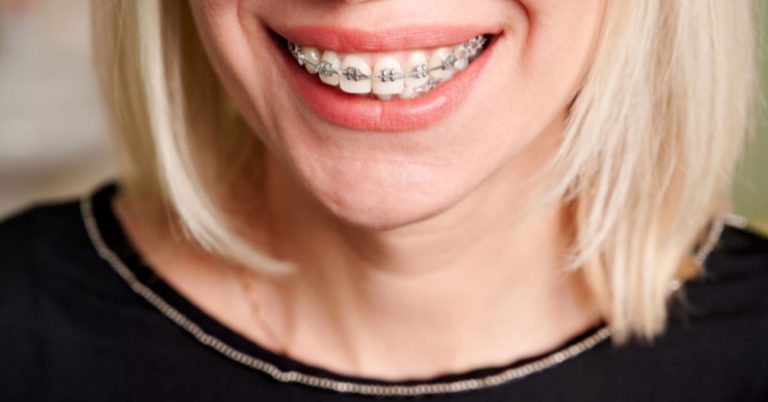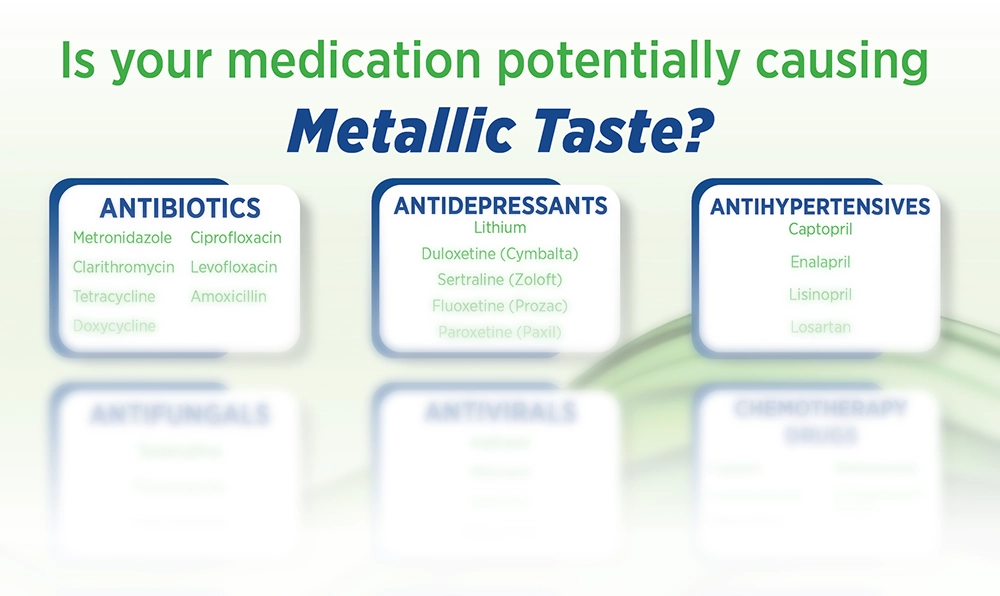

Have you ever experienced a sudden, unexplained metallic taste in your mouth? It’s a strange sensation that can leave you puzzled and wondering why it’s happening.
Don’t worry; you’re not alone. Many people have encountered this peculiar taste at least once in their lives. In this article, we’ll explore the possible reasons behind this phenomenon and shed some light on the mysteries of the random metallic taste.
Imagine biting into a juicy apple, expecting a burst of sweetness, only to be greeted by a taste reminiscent of pennies or metal. It can be quite disconcerting. But what causes this strange sensation? Let’s delve into some potential explanations.
Certain medications can lead to a metallic taste in the mouth as an unintended side effect. Antibiotics, antihistamines, antipsychotics, and even some cardiovascular drugs have been known to cause this peculiar taste sensation.
If you recently started a new medication regimen and noticed the metallic taste coinciding with it, consult your healthcare provider to discuss the issue.
Oral health plays a significant role in our overall well-being, and it can also contribute to that metallic taste. Gum diseases, such as gingivitis or periodontitis, can lead to bleeding gums. The presence of blood in your mouth can create a metallic flavor.
Additionally, poor oral hygiene, dental infections, or the presence of dental restorations like metal fillings can also be the culprits behind that metallic taste sensation.
If you’re an expectant mother, you may be surprised to find yourself experiencing a metallic taste. This strange phenomenon, known as “dysgeusia of pregnancy” is not uncommon. Hormonal changes during pregnancy can affect taste buds, resulting in altered perceptions of taste, including the notorious metallic flavor. The good news is that this symptom typically subsides after giving birth.
Believe it or not, sinus problems can affect the taste in your mouth. Inflammation or infections in the sinuses can interfere with the proper functioning of your olfactory system, which is responsible for your sense of smell. Since taste and smell are closely linked, any disruption to your sense of smell can influence your perception of taste, potentially causing a metallic flavor.
A lack of certain essential minerals like zinc and copper in your diet can lead to a metallic taste in your mouth. These minerals are vital for proper taste bud function, and their deficiency can result in altered taste sensations.
If you suspect a nutritional imbalance, it’s a good idea to consult a healthcare professional or a registered dietitian to evaluate your diet and recommend appropriate changes or supplements.
Acid reflux, also known as gastroesophageal reflux disease (GERD), occurs when stomach acid flows back into the esophagus. Besides causing heartburn, acid reflux can also trigger a metallic taste in the mouth. The regurgitated stomach acid can affect the taste buds, leading to an unpleasant metallic sensation.
In some cases, nerve damage can be associated with a metallic taste. Conditions like Bell’s palsy, multiple sclerosis, or certain medications that affect the nervous system can interfere with the proper transmission of taste signals, leading to altered taste perceptions, including a metallic flavor.
Braces can be a potential reason for a metallic taste in your mouth. The metal components of braces, such as brackets and wires, can trap saliva and food particles, leading to bacterial growth. This buildup can produce acids that cause a metallic taste.
Additionally, the presence of metal in your mouth can slightly affect your taste buds, contributing to the sensation. Maintaining good oral hygiene and regular visits to your orthodontist can help minimize this temporary issue.
While a random metallic taste in your mouth can be unsettling, it’s often a temporary and harmless occurrence. However, if the metallic taste persists, becomes severe, or is accompanied by other concerning symptoms, it’s essential to consult a healthcare professional to rule out any underlying health issues.
In most cases, identifying the underlying cause of the metallic taste can help address the issue and restore your taste buds to their normal function. So, the next time you experience this peculiar sensation, remember that you’re not alone, and there might be a simple explanation behind this mysterious metallic taste.
